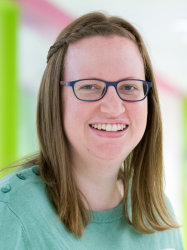Overview
My research concerns the development of new methods which can simulate large systems containing up to tens of thousands of atoms from first principles, i.e. without any experimental input. This primarily involves the use of density functional theory (DFT), including linear-scaling and fragment-based DFT, as well as multi-scale approaches which combine more than one level of theory.
From a materials perspective I am interested in applications to a range of materials, both molecular and in the condensed phase. My current focus is on the treatment of disordered organic semiconductors for plastic electronic applications, particularly OLEDs. However I have also been involved in work simulating diverse materials including DNA, nanotubes, graphene and uranium dioxide.
From a computational point of view, I am interested in the implementation of new algorithms for improving the parallel performance of electronic structure codes and thereby enabling applications to new materials, in tandem with the more efficient use of high performance computing resources.
I develop the following three codes.
BigDFT

BigDFT is an open-source DFT code which uses a wavelet basis set and is designed to efficiently exploit supercomputers. As well as a conventional cubic-scaling approach, both linear-scaling and fragment approaches are also implemented, allowing the treatment of systems containing tens of thousands of atoms.
ONETEP

ONETEP is a linear-scaling DFT code which uses a set of localized orbitals that are adapted to the local chemical environment within a given material. These orbitals are exploited to overcome the cubic-scaling limit of conventional DFT implementations, while maintaining a high level of accuracy.
MADNESS

MADNESS (Multiresolution ADaptive Numerical Environment for Scientific Simulation) is a general purpose numerical framework which combines a multiresolution approach with a parallel programming environment designed for petascale performance. There are a number of applications which use MADNESS, including a molecular DFT code.

